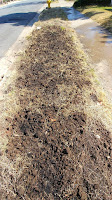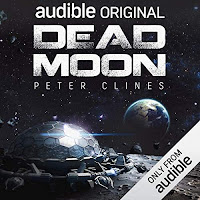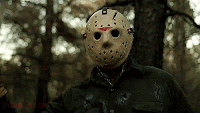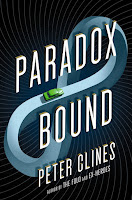I wanted to take a minute or two to talk about a certain type of talking.
We all have our own unique voice based on where we grew up or maybe where we ended up. It’s partly accent, partly regional vocabulary. I think we’ve talked about the whole pop vs. soda vs. cola thing before, right? Plus some of you weirdos who just call everything a coke. But there are tons of little things like that. For example, does your street have a parkway, a common, an easement, or a road strip?
Everyone has their own personal vocabulary, and their own preferred words. It’s a way we can identify people (and characters). And it’s a way we can learn a little more about them.
For example… I grew up in
And that last bit is what I wanted to talk about.
I’m betting most of you have had a job at some point with its own special vocabulary. Certain terms and phrases unique to that business. Sometimes they refer to specialized equipment, other times to certain practices or methods. If you were in retail, I bet you had to deal with a lot of terms that came down from some corporate desk, right?
And that’s another aspect of this. At that job, there were probably all the “correct” terms and phrases and names to use… and then there were the ones that actually got used on the job. I’m sure you know what I’m talking about. There’s the way we get told it works, the way the people up top say it works… and there’s the way everybody down on the ground floor actually does it.
For example, again… most of you know I worked in the film industry for several years (a good chunk of that “half my life in
But it’s not like the film industry’s that rare. The military has a lot of their own terminology, and a lot of jargon that gets used in place of that terminology. So does the medical community. I’ve talked with my scientist-turned-urban-fantasy-author friend Kristi Charish numerous times about the language and phrases used in a lab. I have a bunch of friends in the game industry who’ve let jargon slide out now and then. I worked at a Walgreens through most of high school, a suit store for a year after college, and a few theaters in
Weird as it may sound, this is why I like having beta readers with different backgrounds than me. And why I like talking with people who work in all sorts of fields. Because so often they’ll tell me “this isn’t how Wakko would say this,” or “Dot would probably call this a…”
It’s also why I love talking to people in person (or these days, on Zoom) when I’m asking them questions about things. A lot of the time when they’re speaking (rather than writing it out), they’ll fall back on that jargon first because it’s the natural way they speak about things. And that’s what I want to know—how would my characters naturally talk about these topics. What parts of their work vocabulary leak into their day-to-day conversations?
Of course, this is all just for flavor. I don’t want to bury my dialogue in jargon for the same reason I probably don’t want to write out an extreme accent—I don’t want my readers to get lost or confused in the dialogue. Believe me, back when I was in the film industry, I brought many Thanksgiving dinners to a dead halt as I tried to explain “things that happened at work” to my family. Because these were casual, everyday terms for me, but they had noidea what I was talking about.
I want my readers to be able to flow past odd spellings or to figure out unusual terms from context. And I want the readers who know this jargon to see that I’ve done my research, for them to feel instantly familiar with the characters they should be identifying with the most. Again, just that dash of flavor that makes something perfect.
So learn those odd terms and casual phrases. Make characters talk like the people they’re supposed to be, in the jobs they’re supposed to have. Because it’ll grab your readers and pull them deeper into the story.
And personally, I like it when my writing pulls readers deeper into the story.
Next time, I thought I might go back over a few basics.
Until then, go write.













